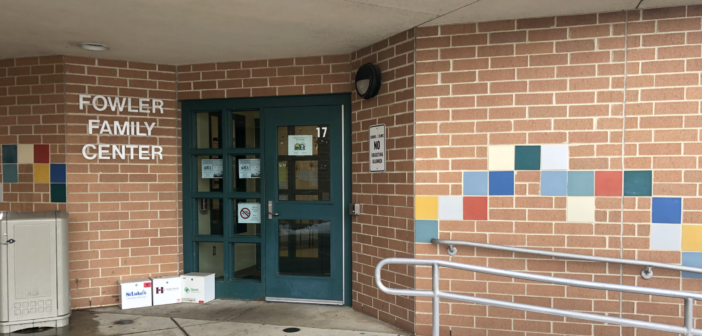Clarence Ham, 57, walks into the small waiting room. He is immediately greeted with smiles from the receptionists across the room.
“I’m here for my appointment,” Ham said.
He doesn’t have to state his name or reason for visit. Everyone knows him.
When he was 54, Ham moved from New York City to Bethlehem. He had been in and out of psychiatric wards for 20 years and never envisioned he’d break the cycle. It wasn’t until he discovered the Neighborhood Health Centers of the Lehigh Valley (NHCLV) that he thought he might be able to live a normal life.
NHCLV is located in the Fowler Family Center connected to Donegan Elementary School on East Fourth Street. The clinic serves the underinsured and uninsured community in the Lehigh Valley. The Bethlehem location is the smallest of three in the Lehigh Valley — the others are in Easton and Allentown.
For Ham, NHCLV has had a large impact on his mental health. When he first went to NHCLV, he was afraid to open up and be honest. However, he said the support the entire staff provided allowed him to open up about his past, which is something he had never been able to do before.
At every other facility Ham went to, he felt the staff did not explain the treatment prescribed, which made him hesitant to follow their regiments. The NHCLV staff explains their courses of treatment every step of the way. This, along with the respect and love they provided, helped Ham get better.
“I’m who I am because of the Neighborhood Health Center,” Ham said.
The Bethlehem clinic serves 18-22 patients daily. It provides health services including primary care, prenatal care, psychiatry and periodic mental health screenings.
“It’s a one-stop shop for all the patients,” said Jessica Rodriguez, the clinical coordinator. “They don’t have to go outside the community to see other providers. We have everything in one.”
NHCLV-Bethlehem has a nurse practitioner who sees patients daily, as well as a doctor who comes in every Monday to treat patients with conditions that are too complex for the nurse practitioner.
NHCLV’s impact does not stop at medical treatment. Mirialy Campos-Cruz, the clinic’s behavioral health integrated specialist, helps patients with life skills training, such as money management and organizational skills. She works to make their lives easier in any way she can.
“I also do some life skills with them,” Campos-Cruz said. “So, if they don’t know how to manage a bank account I can help with that. I also coordinate referrals for them.”
Ham said he could not put into words how much the center has helped him — not only with his mental illness but also with his daily life and routines. The center has given him the tools to live a more normal life than he thought was possible.
NHCLV goes even further by educating the community about the benefits of health insurance.
Cathy Cortijo, the former outreach and enrollment specialist and current front office coordinator, used to be in charge of helping uninsured patients apply for insurance.
“It was not just about health coverage,” Cortijo said. “It was about offering them other benefits. Anything that would help them bridge the gap to get them better care.”
As outreach and enrollment specialist, Cortijo went out into the community to explain NHCLV to citizens and educate them on the advantages of health insurance.
“We’ll take care of you if you don’t have insurance, but we still think it’s better if you (do),” said Hannah Paxton, the director of population and quality in the NHCLV administrative offices.
Paxton’s role at NHCLV is to ensure the clinics are providing the best care possible as well as to look for areas of improvement and help integrate any changes necessary. She works on all three NHCLV locations and said the administration is looking into opening a fourth location on the North Side of Bethlehem.
NHCLV is a federally-funded health clinic. It receives money from the U.S. Department of Health and Human Services as well as the Health Resources and Services Administration.
The clinic was incorporated as a nonprofit organization. At the time, it was a small company working in the basement of a church in Easton. It took over a St. Luke’s clinic in 2010 and became a fully independent entity in 2012.
NHCLV has grown from approximately 20 employees to 70 in the six years since becoming fully independent.
The clinics see about 5,000 patients per year. About 1,600 of those patients are seen in Bethlehem.
All patients are given mental health screening every three months. Campos-Cruz said this is because within a low-income population, family and home life situations are often unstable.
These regular check-ups may serve as literal lifelines for patients like Ham, assuring them that there are people who not only understand their difficulties but also can help them achieve a “more normal” life.
“Because of the love and respect (NHCLV), showed my recovery process was made much easier and I am the man I am today,” Ham said. “I can smile now, which I couldn’t do before.”






Comment policy
Comments posted to The Brown and White website are reviewed by a moderator before being approved. Incendiary speech or harassing language, including comments targeted at individuals, may be deemed unacceptable and not published. Spam and other soliciting will also be declined.
The Brown and White also reserves the right to not publish entirely anonymous comments.